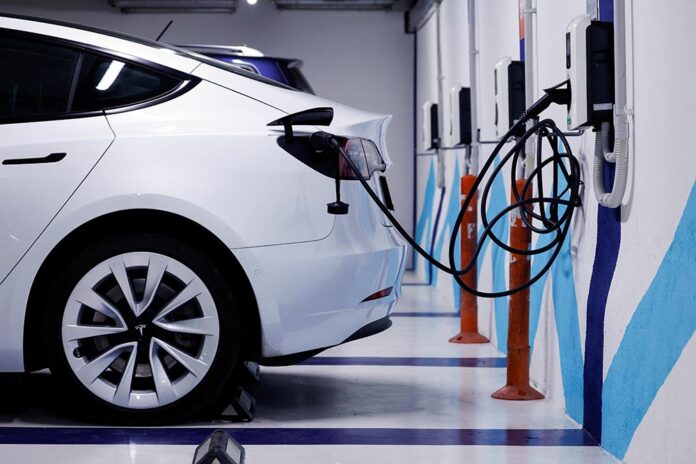Arthur D. Little (ADL), the world’s first management consulting firm, has released its latest report, ‘Global Electric Mobility Readiness Index (GEMRIX) 2023’, which shows Kuwait ranking 14th globally in electric vehicle (EV) readiness. This significant achievement aligns with the country’s ambitious infrastructure and environmental goals, as well as its broader economic diversification strategy.
Partner and Travel and Transportation Practice Lead at ADL Middle East, Joseph Salem, emphasized Kuwait’s commitment, stating, “Kuwait’s strategic initiatives in the electric vehicle sector are not just ambitious but actionable. Plans for the establishment of an EV City by the Kuwait Ports Authority (KPA) underlines the country’s resolve to be at the forefront of sustainable transportation.”
Kuwait’s high per capita GDP, public readiness, public and private collaboration to build a robust EV ecosystem, as well as government incentives and its focus on sustainable transportation are making the country ripe for EV adoption. These concerted efforts are setting the stage for Kuwait to make significant strides in achieving its New Kuwait 2035 vision and becoming a key player in the region’s sustainable transportation landscape.
In 2021 KPA announced plans to establish the Middle East’s first city to serve electric vehicle manufacturers, called EV City. The plan serves as a concrete manifestation of the New Kuwait 2035 vision and was a clear signal that Kuwait is committed to becoming a leader in the regional EV sector.
The Contracts Committee of the KPA approved a proposal to build the EV City, which will provide all appropriate port and logistical services to major global players, including manufacturers of electric cars, according to General Manager of KPA, Sheikh Yousef Al-Abdullah Al-Sabah. He also highlighted that leading EV makers sell directly to customers via online platforms, thereby relegating KPA’s role to providing only certain infrastructure and logistical services to manufacturers, which is a common service provided by other international ports.
Now in its third annual iteration, the GEMRIX 2023 expands its scope to include 35 markets across all continents, including dynamically evolving automotive markets in the Middle East and North Africa (MENA) region and South-East Asia. This makes it the most comprehensive EV market readiness indicator available in the industry today. The expansion highlights a notable surge in global EV adoption, driven by government initiatives and consumer willingness.
With EVs making up 88 percent of all new cars sold in 2022, Norway maintains its position as the global leader in EV readiness, with China following close behind. Germany, the UK, and Singapore are in the next three positions, as they were found to be markets where EVs were on the verge of becoming mainstream.
Meanwhile, countries such as the US, Japan, United Arab Emirates, and India make up the Emerging EV Markets category. In those markets, the intent to increase EV adoption is recognizable and supported by government initiatives, but charging infrastructure or vehicle availability still needs to be improved.
The final group (Starters), which includes, for example, South Africa, Turkey, and Malaysia, are still very early in their EV journey, with adoption held back by high cost of ownership and a nascent EV ecosystem. Determining factors for EV adoption were also found to vary — consumers in higher-income markets prioritize environmental protection and vehicle performance, while those in lower-income countries focus on cost-efficiency as a driver.
GEMRIX summarizes 50 data points per market on five major categories that reflect the key drivers for EV adoption. Those include customer preparedness, public infrastructure readiness, vehicle cost comparisons, and government incentives plus regulatory support.

















